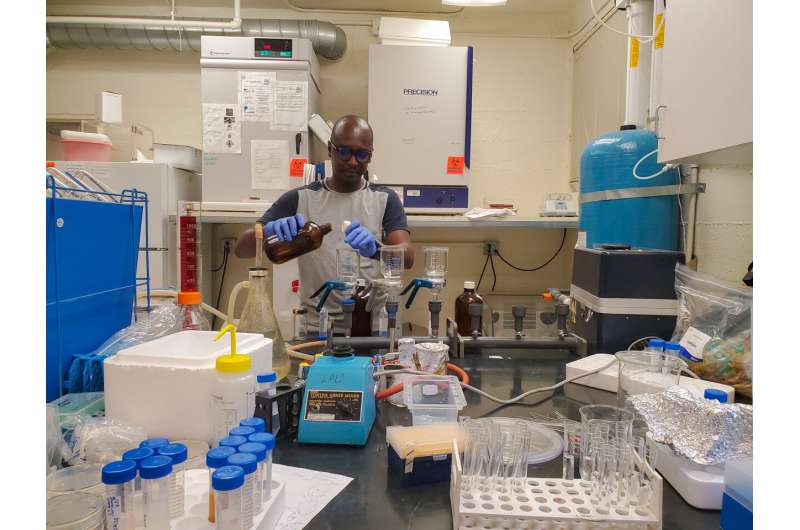This article has been reviewed according to Science X's editorial process and policies. Editors have highlighted the following attributes while ensuring the content's credibility:
fact-checked
proofread
Researchers find contaminated water in fast-food soda fountains

Loma Linda University (LLU) researchers found microbial contamination in common sources of drinking water in the Eastern Coachella Valley, including soda fountains at fast-food restaurants. Their findings revealed that 41% of the water samples researchers collected from these soda fountains contained total coliforms, an indicator of water contamination.
Molecular analysis of the water samples revealed traces of genetic material found in bacteria, including Salmonella spp (Salmonella), Pseudomonas aeruginosa, and Escherichia coli (E. coli). Given these findings, study authors advise soda fountain owners to regularly clean and flush the dispensers as a way to prevent water contamination.
"To the best of our knowledge, our study is the first to assess the water quality from soda fountains, water vending machines, swabs, and tap water, especially in the Eastern Coachella Valley," said Thomas Hile, Ph.D., MSc, an LLU affiliated researcher and lead author of the study.
The study, "Microbial contamination analysis of drinking water from bulk dispensers and fast-food restaurants in the Eastern Coachella Valley, California," was published last month in Water Supply.
Researchers collected 72 water samples from fast-food soda fountains, water vending machines, and tap water from outdoor sources in the Eastern Coachella Valley. They measured physico-chemical parameters on site and brought samples back to the laboratory to perform conventional cultivable methods and molecular analysis.
Analysis of the water samples indicated the presence of biofilms—organized communities of organisms widely present in nature that represent serious problems in environmental, industrial, and medical settings. In several cases, the amounts of bacteria in soda fountain samples exceeded the maximum permissible levels set by the Environmental Protection Agency.
"The presence of pathogenic microorganisms in drinking water is a serious public health concern and cannot be overemphasized," the authors stated in their journal article.
Based on the results, the authors contend that biofilm forms over time in water distribution systems, mainly made of plastic piping, funneling water to fast-food soda fountains and water vending machines. Additionally, they say the soda fountains' filtration systems, when not maintained, do not effectively prevent water contamination.
East Coachella Valley is an environmental justice area and includes the city of Coachella and the unincorporated communities of Thermal, Oasis, Mecca, and North Shore. These communities are primarily Latino, made up of migrant and agricultural-worker families that struggle for access to safe drinking water.
"The study collected water samples from an underserved area, where there generally aren't routine checks of water quality and lack of maintenance for soda fountains or water vending machines," said Ryan Sinclair, Ph.D., MPH, the study's last author and an associate professor at Loma Linda University School of Public Health and School of Medicine.
He says the study reinforces the importance of developing surveillance and regulations that target fast-food soda fountains and water dispensers. He and study authors recommend that owners regularly clean and flush dispensers and use antimicrobial tubes inside water dispensers to control the growth of biofilms.
The study's researchers plan to perform a risk assessment to determine whether the levels of microbes they identified and quantified in their water samples pose a health hazard or are tied to any health conditions.
More information: Thomas Dama Hile et al, Microbial contamination analysis of drinking water from bulk dispensers and fast-food restaurants in the Eastern Coachella Valley, California, Water Supply (2023). DOI: 10.2166/ws.2023.200




















